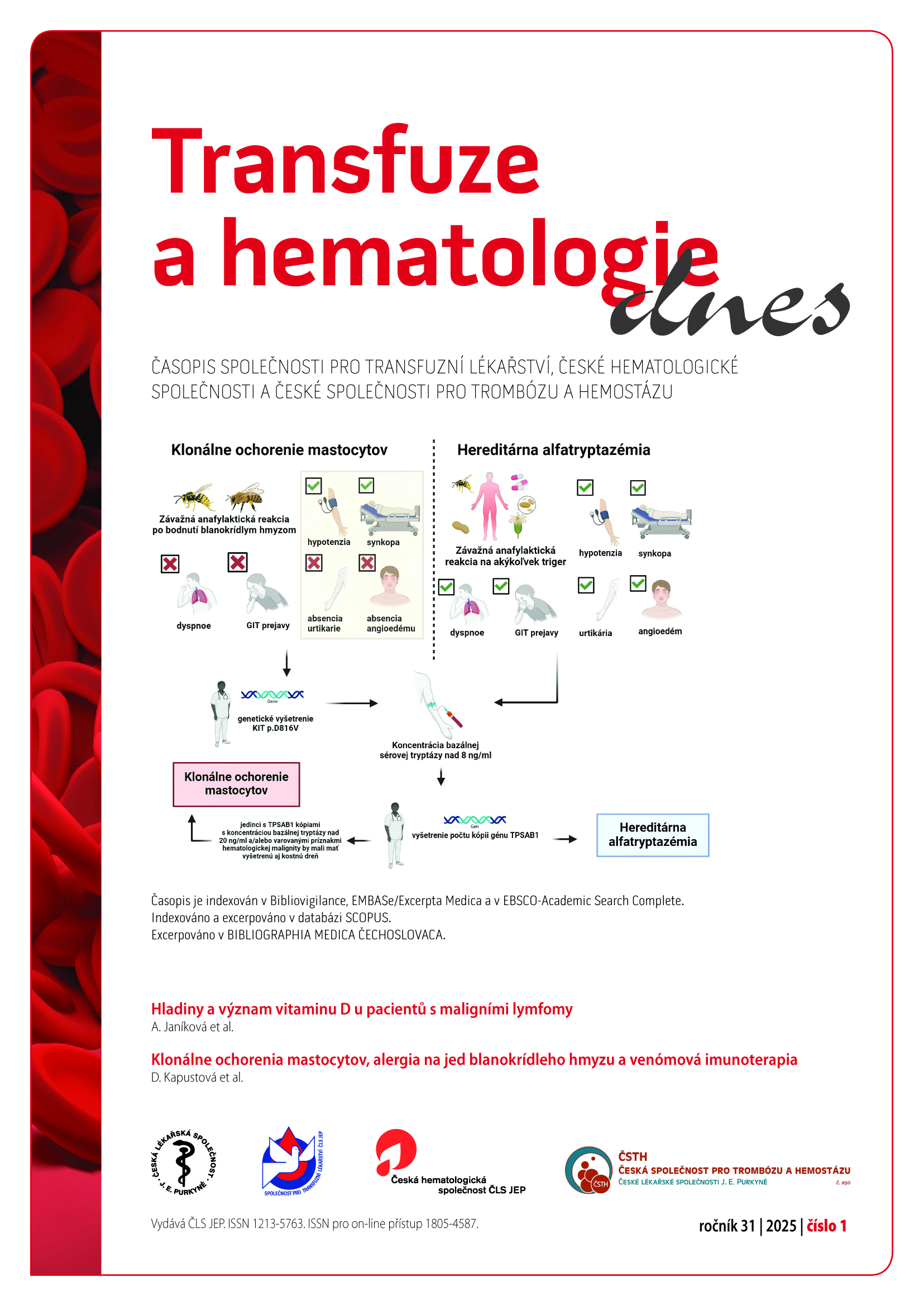Kardiovaskulární komplikace, které mohou způsobit protimyelomové léky
Abstract
Cardiovascular complication of anti-myeloma therapy
Most patients with multiple myeloma (MM) are over 50 years old, an age when cardiovascular disease is common. Therefore, it is necessary to be aware of the adverse cardiovascular effects of anti-myeloma drugs. Of the classic cytostatics, doxorubicin has a well-known cardiotonic effect. However, high doses of cyclophosphamide, used for collecting hematopoietic stem cells, can also cause cardiovascular complications. Therefore, in case of heart damage caused by AL-amyloidosis, it is recommended to collect stem cells after G-CSF. Doses of melphalan, which are common in hematopoietic stem transplantation, can also have a negative effect on the heart and induce arrhythmias. Of the group of proteasome inhibitors, carfilzomib has the most cardiovascular adverse reactions, after bortezomib they have been described to a much lesser extent, cardiotoxicity is not described for ixazomib. Drugs from the IMiDs group have a predominant procoagulant effect, requiring targeted prophylaxis of thrombosis and pulmonary embolism, but rhythm disturbances have also been described.
Treatment with new anti-CD38 monoclonal antibodies is not associated with evident cardiotoxicity, but cardiovascular side effects are described with glucocorticoids, which are the standard premedication for anti-CD antibodies. The aim of this article is to inform about the incidence of these complications associated with antimyeloma treatment.
Keywords: cardiovascular complications of multiple myeloma, cyclophosphamide, melphalan proteasome inhibitors, IMiDs drugs, anti-CD38 monoclonal antibodies


